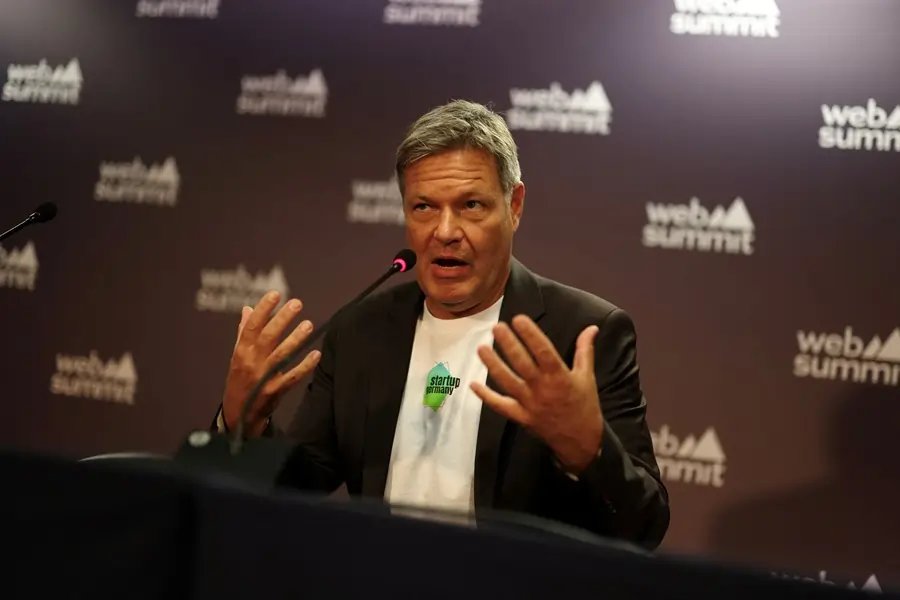German minister proposes subsidies to stabilize power network fees


BERLIN (Reuters) – German Economy Minister Robert Habeck on Tuesday proposed subsidies to stabilize fluctuations in electricity network fees, as consumers and companies bear the brunt of high energy costs that have hindered production and investment.
The subsidies “would be a short-term measure for 2025, which could still be technically implemented, for example, through a supplementary budget for 2024,” Habeck said on the sidelines of an industry conference in Berlin.
Fees for using the power network already make up around 20% of consumers’ bills in Germany, while high energy prices have hurt German companies’ production and competitiveness, impacting the country’s overall economic output.
These prices are set to rise further to reflect the cost of grid improvement needed to transport big volumes of renewables, with the total cost likely to run into several hundred billions of euros by 2045.
Habeck said preparatory work for the subsidy was completed but the proposal faces uncertain prospects in the current legislative period after the collapse of Germany’s governing coalition.
In the medium term, Habeck favours spreading across generations the cost of expanding Germany’s electricity network for the ramp up of decentralized solar and wind power. That effort is estimated to cost around 450 billion euros by 2045, borne by consumers through their energy bills.
To further lower electricity prices – among the highest in Europe – Habeck was in favour of reducing electricity tax to the European minimum for all consumers.
“This reduces the price of electricity by around 2 cents per kilowatt hours,” Habeck told Reuters.
(Reporting by Christian Kraemer and Riham Alkousaa, Editing by Miranda Murray and Bernadette Baum)
Electricity network fees are charges that consumers pay for the use of the electricity distribution network. These fees typically account for a significant portion of the overall electricity bill.
Renewable energy is energy derived from natural sources that are replenished at a faster rate than they are consumed, such as solar, wind, and hydroelectric power.
High energy costs can hinder production and investment, affecting the competitiveness of companies and the overall economic output of a country.
Explore more articles in the Top Stories category











